2017 Events Archive
| Date | Event | Speaker(s) |
|---|---|---|
| March 13 | A Fendi Roma Case Study | Pietro Beccari |
| March 24 | The Future of Italian Manufacturing | Ricardo Illy |
| April 18 | The Role of the Writer | Mario Vargas Llosa, Claudio Magris, Charlie Rose |
| September 27 | The Autism Specturm Disorder: Latest Research and Treatment of Autism | Dr. Luigi Mazzone & Dr. Kevin Pelphrey |
| October 26 | The Garbage Patch State: Oceans Plastics Pollution | Maria Cristina Finucci & Laura Parker |
| November 15 | Nutrition and Health: Challenges and Solutions | Dr. Lorenzo M. Donini, Dr. Lawrence J. Cheskin & Dr. Lucile Adams-Campbell |
Nutrition & Health: Challenges and Solutions
Wednesday, November 15th at 6:30 p.m.
Intercultural Center Auditorium, Georgetown University
3700 O Street NW Washington, DC 20057
In collaboration with the Embassy of Italy & the Italian Cultural Institute, the Georgetown University Italian Research Institute is pleased to sponsor a symposium and discussion addressing nutrition and preventive medicine from malnutrition, eating disorders, and healthy diet to the sustainability of the Mediterranean Diet.
Speakers
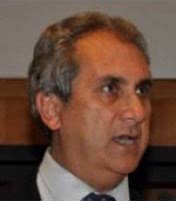
Dr. Lorenzo M. Donini
Professor of Medicine and Surgery
Sapienza University of Rome, Italy
Lorenzo M. Donini (MD) was born in Rome on the 20th April, 1955. He is Full Professor at the Faculty of Medicine and Surgery of the Sapienza University of Rome, President of the Degree Course for Dietitians, Coordinator of the activities of the teaching staff of the School the Specialisation School in Food Science and Nutrition, CEO of the CIISCAM (International inter-university center for Mediterranean food culture studies) President of the SISDCA (Italian Society for the Study of Eating Disorders).
Research
He is currently head of the Research Unit on “Food Science and Human Nutrition” of the Department of Experimental Medicine (Medical Pathophysiology, Food Science and Endocrinology Section at the Sapienza University of Rome, Italy). Since 1991 he published more than 150 papers in extenso (most part in international journals) and more than 30 chapters of books relevant to malnutrition, obesity and metabolism, eating behaviour (orthorexia nervosa, senile anorexia), sustainability of Mediterranean Diet, catering services. He coordinated different funded research projects and single WPs in funded research grants. He is peer reviewer for many scientific journals, Member of the Editorial Board of different journals dealing with food science and nutrition, currently Associate Editor of “Eating and Weight Disorders” Journal and member of different Italian and International Scientific Societies.
Teaching Responsibilities
At “Sapienza” the University of Rome, from the academic year 2000-2001 until now, Organizer and Teacher of courses in Food Science and Clinical Nutrition in the Degree Course in the Faculty of Medicine, in the Postgraduate Course “Science of Health Professions for Technical Assistance” in the Specialisation Schools in “Food Science and Nutrition” and “Endocrinology” in the Degree Course for Dieticians. Clinical Activities. From 1998 to 2011 at the Rehabilitation Clinical Institute “Villa delle Querce” of Nemi (RM – Italy), he was the Scientific Director of the Metabolic-Nutritional Rehabilitation Unit. From 2010 he is the Head of the Nutritional Status evaluation Lab at the Policlinico Umberto I in Rome (teaching hospital of the Sapienza University) mainly devoted to sarcopenic obese subjects.
Abstract
Healthy Diet & Sustainability: The Mediterranean Diet as a Case Study
One of the major challenges for the food and agricultural sector is to provide, simultaneously, enough food to meet nutritional needs while conserving natural resources for present and future generations. FAO estimates that, in 2050, to satisfy the demands of a growing and richer population, with increased meat consumption, food production will have to increase by at least 60 percent. Food consumption and production trends and patterns are among the most important drivers of environmental pressures that can be reduced partly by changing diets and decreasing food loss and waste. In the early 1980s, the notion of “sustainable diets” started to be discussed and more recently defined as those “diets with low environmental impacts which contribute to food and nutrition security and to healthy life for present and future generations. Sustainable diets are protective and respectful of biodiversity and ecosystems, culturally acceptable, accessible, economically fair and affordable; nutritionally adequate, safe and healthy; while optimizing natural and human resources” (FAO, 2010). The Mediterranean Diet (MD) has been widely reported scientifically to be a healthy dietary profile and a greater adherence to the MD has been associated with significant nutrition and health benefits (Serra-Majem et al, 2006; Sofi et al, 2008; Maillot et al, 2011; Trichopoulou et al, 2014). Moreover, the MD has been valued for its lower environmental impact (Gussow, 1995; Duchin, 2005; Baroni et al, 2007; EC/JRC, 2009; Barilla Center for Food and Nutrition, 2010). The importance of the MD, as an example of a sustainable diet, lies not only in its specific foods and nutrients but in its accompanying lifestyle and the methods used to characterize and analyze it and the philosophy of sustainability that is at its core (Burlingame and Dernini, 2011; Trichopoulou, 2012).
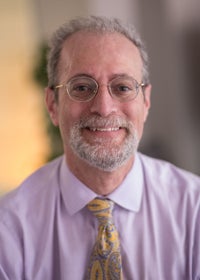
Lawrence J. Cheskin, MD, FACP, FTOS
Director, Johns Hopkins Weight Management Center
Associate Professor, Health, Behavior & Society
Johns Hopkins Bloomberg School of Public Health
Lawrence J. Cheskin, MD, FACP, FTOS is Associate Professor, Health, Behavior & Society at Johns Hopkins Bloomberg School of Public Health, with joint appointments in Medicine (GI); International Health (Human Nutrition), Nursing, and Public Health Studies. He received his medical degree from Dartmouth in 1980 and was a postdoctoral fellow at Yale University-New Haven Hospital. He has dedicated his career to research, education, and program building in the service of combating obesity, through both treatment and prevention.
He directs the Johns Hopkins Weight Management Center, a multidisciplinary clinical research and treatment program he founded. He is also Director of Clinical Research of the Global Obesity Prevention Center at Johns Hopkins, and directed its Pilot Studies Core, which evaluates timely, systems-focused proposals worldwide to study such areas as school policies and the built environment’s effect in preventing childhood obesity.
Dr. Cheskin’s work is at the intersection of public health and clinical medicine: applying knowledge gained through rigorous clinical investigation to the community and beyond. His work has impacted the problem of obesity through innovative treatment paradigms disseminated through practice (as modeled by the Johns Hopkins Weight Management Center); through the application of new treatment paradigms in community-based participatory research, particularly among the underserved in Baltimore, Maryland; and through mentoring of the next generation of public health and clinical scholars dedicated to obesity.
Most recently, he is co-Principal Investigator of a project to develop obesity prevention and treatment strategies under contract with the Commonwealth of the Bahamas. He is also developing the use of mHealth tailored to the behavioral characteristics of the recipient as a tool to enhance obesity treatment and self-management, as well as enhance practitioners’ adherence to guidelines for the treatment of obesity. He is the author of 180 peer-reviewed journal articles and 6 books.
Abstract
The Global Obesity Epidemic: Causes and Treatment Options
Arguably obesity is the most pressing nutrition problem world-wide in recent years. We will discuss the causes of this global epidemic, and then explore the specific factors that make some individuals more prone to weight gain than others. Finally, we will cover all the means of losing weight, and their efficacy, including diets, exercise, behavior change, medications, and surgery.

Dr. Lucile Adams-Campbell
Associate Director for Minority Health & Health Disparities Research
Associate Dean for Community Health & Outreach
Professor of Oncology
Georgetown University Medical Center
Dr. Adams-Campbell is the Associate Director for Minority Health and Health Disparities Research, Associate Dean for Community Health & Outreach, and Professor of Oncology at Lombardi Comprehensive Cancer Center at Georgetown University Medical Center. She received a B.S. in Biology and a M.S. in Biomedical Science from Drexel University in Philadelphia, PA, and received her Ph.D. in Epidemiology from the Graduate School of Public Health at the University of Pittsburgh. Dr. Adams-Campbell has received numerous awards and honors including the election to the National Academy of Medicine, and the Induction into the D.C. Hall of Fame for her research focus on Health Disparities.
She has received gold medallions awarded from both of her alma maters – the University of Pittsburgh and Drexel University, for outstanding contributions to the field of public health and health sciences. Dr. Adams-Campbell currently serves on the National Academy of Medicine’s National Cancer Policy Forum and the Board of Scientific Counselors of the National Human Genome Research Institute. Her areas of research focus on addressing health disparities with particular emphasis on cancers that disproportionately impact African-Americans. Dr. Adams-Campbell conducts research in the areas of obesity, metabolic syndrome, and energy balance. She has more than 200 peer reviewed publications.
Abstract
Dietary Patterns and Cancer Risk
There is epidemiologic evidence supporting a strong relationship between dietary patterns and breast and colon cancer risk. Low-fat diets and fruits and vegetables have been linked to decreased breast and colon cancer risk. Conversely, dietary fat and red meat have been associated with higher risk of colorectal cancer and adenomas. Colorectal adenomas are viewed as intermediate stages in the development of colorectal cancer, thus preventing the growth of adenomas will prevent colorectal cancer. The Western dietary pattern, characterized by high-fat dairy, meat, eggs, butter and fries, sweets, soda, and snacks, and Prudent diets will be examined in two major national cohort studies, The Women’s Health Initiative and the Black Women’s Health Study. The aim is to identify major dietary patterns in a cohort of African American women and examine their associations with breast and colorectal adenomas.
Moderator

Dr. Margaret Slota, DNP, RN, FAAN
Associate Professor, Director, DNP Program
School of Nursing & Health Studies
Georgetown University
Dr. Slota’s experience includes professional positions as a critical care clinical nurse specialist, flight nurse, staff development educator, university faculty, and healthcare administrator for critical care services. As an administrator, she was responsible for operations in multiple critical care units and respiratory, palliative care, critical care transport and ECMO services. She initiated a collaborative research program for bedside nurses, led professional development and peer recognition programs, initiated a hospital-based cardiopulmonary nursing fellowship program, and implemented an inpatient and outpatient palliative care program.
Dr. Slota served on the Board of Directors for the Center for Organ Recovery and Education and the Center for Emergency Medicine and STAT MedEvac, and was a member of the Nursing Advisory Council to the Pennsylvania State Emergency Medical Services. She is currently Chair of the Pennsylvania State Nurses Association Environmental Health Committee, a member of the Board of Directors for Women for a Healthy Environment, member of the Council of Advisors for the Mid-Atlantic Center for Children’s Health and the Environment, and a member of the Environmental Advisory Council for Franklin Park, PA.
She recently completed the Climate Reality Leadership Corps training with Al Gore. She has presented frequently and published many peer-reviewed articles, chapters, and two books. She was a member of the National Steering Committee of the Pediatric Special Interest Group for the American Association of Critical Care Nurses, an Editorial Board Member for Critical Care Nurses, the first Department Editor for pediatric critical care in Critical Care Nurse, and Editor of the first and second editions of the Core Curriculum for Pediatric Critical Care Nursing.
She has been honored as a Fellow in the American Academy of Nursing, a Fellow in the AACN Leadership for Academic Nursing Program, Cameos of Caring Nurse Educator Award, a UPMC Beckwith Fellow, a Nightingale Award Finalist in Nursing Research, and a Nurse of the Year at Children’s Hospital in Pittsburgh.
The Garbage Patch State: Ocean Plastics Pollution
Thursday, October 26, 2017 at 5:30 p.m.
Intercultural Center Auditorium, Georgetown University
3700 O Street NW Washington, DC 20057
The Georgetown University Italian Research Institute, in collaboration with the Embassy of Italy and the Italian Cultural Institute, is pleased to sponsor a conference dedicated to raising awareness of the environmental harmful impact of plastic pollution to our oceans and to the global marine ecosystem.
Speakers

Maria Cristina Finucci, Architect & Artist
Founder of “The Garbage Patch State”
Maria Cristina Finucci, born in Lucca, Italy, in 1956, is an artist, designer and architect who graduated in Architecture at the University of Florence University with honors. She has lived and worked in Moscow, New York, Paris, Brussels, Madrid, and Rome where she currently lives. Her work has been published in books and magazines. She has also collaborated as a foreign correspondent to the Architecture magazine, Controspazio. From a very young age her artistic research has led her to experiment many forms of art including painting, sculpture, architecture, design, video art, and film post-production which was the subject of a personal exhibition at the Lucca museum in 2010. In 2011 she produced the work Trueman, inspired by the movie The Truman Show and also the video Living Restraint. Finucci investigates the conception of time and space according to the quantum physics recent research and its philosophical implications.
She is currently working on a Transmedia project entitled Wasteland. This work, which includes all the actions of the Garbage Patch State, a State founded by her, is not only her personal response to an ethical commitment to protect the environment, but is also an innovative art form in tune with the monumental changes that we are witnessing today.
Wasteland began its journey in Paris under the patronage of UNESCO, then moved to Venice, to the ARCO International Art Fair in Madrid, to Rome, at the MAXXI Museum, to the UN building in NYC, to the EXPO 2015 in Milan to the Fondazione Bracco and continued to Venice for the “Blue Med High Level Conference” and Paris during the Cop 21 in collaboration with the New York Times. In September 2016 Finucci created a monumental installation in the Isle of Mozia (Sicily). She is currently working at two major exhibitions for 2018 : “OCEANUS, How Art Helps the Planet” also featuring works of Joseph Beuys ad Jason Taylor and a solo exhibition at the Moscow Museum of Modern Art (MMOMA).
Her artworks now belongs to several private collections and Institutions such as the Italian Parliament permanent collection. The International press has widely covered and positively reviewed her work. In 2014 Maria Cristina Finucci received in Italy the “Golden Apple” of the 26th edition of the Bellisario Prize and the “Civiltà dell’Acqua” Prize. Mother of four, Cristina is married to an Italian diplomat, Pietro Sebastiani currently Ambassador to the Holy See.
Abstract
The Garbage Patch State
Maria Cristina Finucci will show, with numerous images, all the “actions” of THE GARBAGE PATCH STATE, the new Federal State she founded at the Paris UNESCO in 2013 to create awareness about the critical problem of plastic choking our Oceans. Through art she is addressing this previously unknown phenomenon. In just five years she has provided visibility to the plastic pollution in our oceans through her monumental installations placed in strategic locations around the world. These exhibits have attracted positive artistic reviews as well as increasing understanding of this serious environmental issue.
Each of her exhibits, such as the one at the UN in New York or at the Paris COP 21, just to name a few, has communicated in an artistic language, understandable to everyone, an image mostly, unknown to many, of the invisible, and therefore neglected, plastic pollution of the Oceans. She has worked alone in creating, through transmedia narration, visionary displays that have connected with and convinced many people. Through her unique, joyful, and ironic artwork, which has avoided the usual frightening and appalling images, she has stimulated curiosity and raised awareness to a critical topic that is confronting the ocean ecosystem.
Here is a synthesis of her project that she entitled Wasteland whose images she will show and discuss:
- 2013 – Paris. The official declaration of the Garbage Patch state in front of the UNESCO Director General
- 2013 – Venice. Creation of the National Pavilion of the Garbage Patch State at the Biennale
- 2014 – Madrid. Installation on the Gran Via
- 2014 – Rome. MAXXI MUSEUM. Creation of the first Embassy of the Garbage Patch State
- 2015 – New York. Installation at the UN Secretariat Building during the General Assembly environment week
- 2015 – Milano. Expo 2015 Installation
- 2015 – Paris. Cop 21 Installation
- 2015 – Venice. Aquamed Mediterranean Ministerial High-Level Conference
- 2016 – Isle of Mozia, Italy, installation HELP the next works for 2018
- ROME – HELP on the Fori Imperiali Archeological site near the Colosseum
- MOSCOW – a site-specific gigantic work at the MMOMA
Her future goal is to stimulate global action through popular support. This action will include promulgating the requisite global, national, and local laws as well as raising the necessary funds for program implementation that will ensure that plastics are cleaned from coasts before reaching the oceans. Just as important, she hopes through education these projects will provide global citizens the visual means to recognize the public good achieved when we reduce and reuse plastics.

Laura Parker
Senior Staff Writer
National Geographic, Washington DC
Laura Parker is a staff writer for National Geographic and specializes in covering climate change and marine environments.
For the magazine, she covered efforts in South Florida to both ignore and prepare for rising seas, and the declining Ogallala Aquifer, which supports $20 billion in irrigated agriculture every year and is one of 21 large aquifers in the world (among 37 large aquifers) that has passed the sustainability tipping point. Prior to joining National Geographic, she worked a national correspondent for USA Today and The Washington Post.
She has been a Nieman Fellow at Harvard University. An Alicia Patterson fellowship enabled her to spend a year in the Mississippi Delta, for a comprehensive look at illiteracy, poverty and casino gambling in the racially divided town of Tunica. Parker co-authored with her husband, William Prochnau, Miracle on the Hudson, an account of the crash landing of US Airways Flight 1589 on the Hudson River in 2009. She and Prochnau also have written for Vanity Fair on such subjects as avian flu, for which they traveled the back roads of Southeast Asia, and the descendants of the H.M.S. Bounty’s mutineers on Pitcairn Island.
Plastic Soup: Plastic Trash is Killing The World’s Oceans, Flowing in at a Rate of 8 Million Tons a Year. Can the Seas be Saved?
Moderator
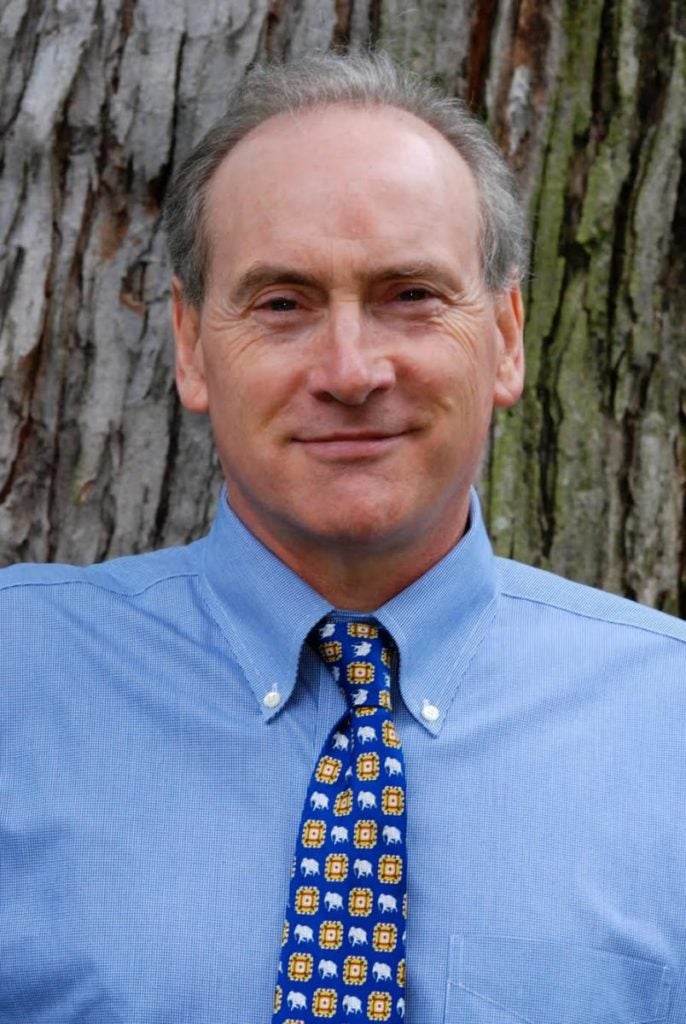
Dr. John McNeill
University Professor, School of Foreign Service
Georgetown University
J.R. McNeill has held two Fulbright awards, and fellowships from Guggenheim, MacArthur, and the Woodrow Wilson Center. His books include The Mountains of the Mediterranean (1992); Something New Under the Sun (2000), winner of two prizes, listed by the London Times among the 10 best science books ever written (despite not being a science book), and translated into 9 languages; The Human Web (2003), translated into 7 languages; and Mosquito Empires (2010), which won the Beveridge Prize from the AHA; and The Great Acceleration (2016). In 2010 he was awarded the Toynbee Prize for ‘academic and public contributions to humanity.’
His research is in the area of environmental history.
The Autism Spectrum Disorder: Latest Research and Treatment of Autism
Wednesday, September 27, 2017 at 6:30 p.m.
Intercultural Center Auditorium, Georgetown University
3700 O Street NW Washington, DC 20057
The Georgetown University Italian Research Institute, in collaboration with the Embassy of Italy and the Italian Cultural Institute, is pleased to sponsor a conference and discussion on cutting-edge research on the autism spectrum disorder led by renowned neuroscientists.
Speakers
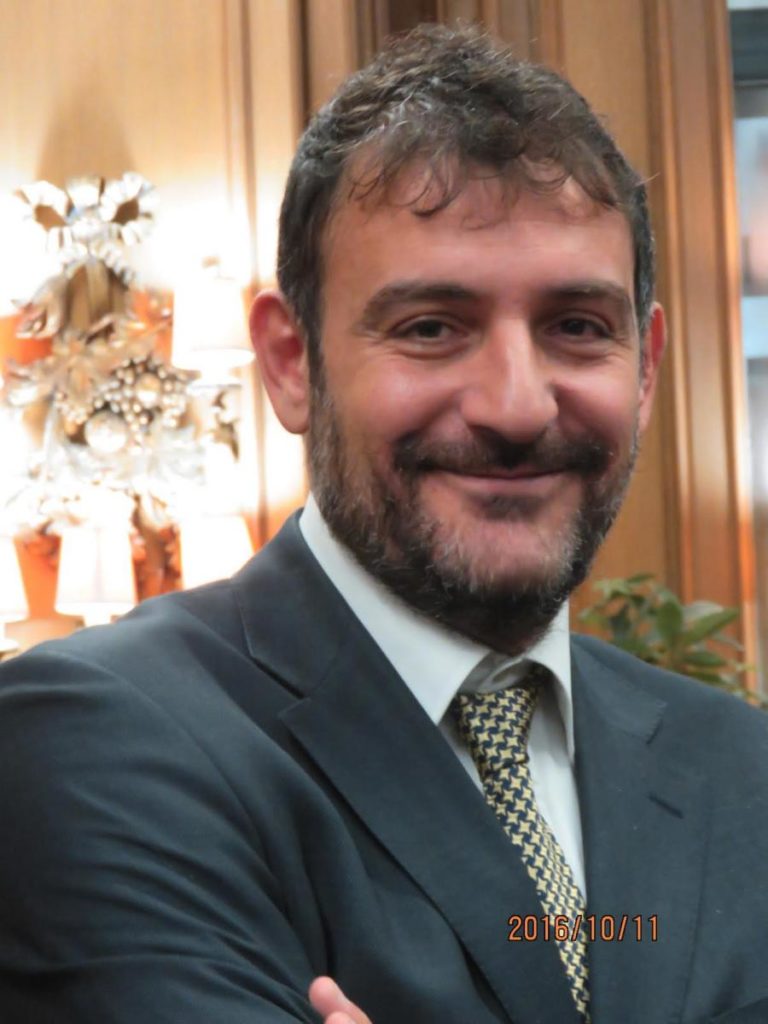
Dr. Luigi Mazzone, Neuropsychiatrist
Division of Child Psychiatry at
The University of Tor Vergata, Rome, Italy
Luigi Mazzone (M.D.) received his Ph.D. degree in pediatric science from the University of Catania, Italy. After obtaining the Ph.D. degree, he completed two postdoctoral programs abroad.The first one, from September 2005 until September 2006, was a postdoctoral visiting fellowship at the intramural program of the National Institute of Mental Health (NIMH), in Bethesda, MD. After that, in September 2006, he was awarded the “Alexander Bodini” Fellowship at the Italian Academy for Advanced Studies in America at Columbia University. The fellowship offered him the opportunity to complete his second postdoctoral experience, which lasted from October 2006 until September 2009, at the Pediatric Brain Imaging Laboratory at Columbia University in New York.
At NIMH and at Columbia University, by using functional magnetic resonance imaging, the aim of Dr. Mazzone’s research was to gain a better understanding of the neurobiological substrates underlying psychiatric disorders such as autism spectrum disorder, ADHD, and Tourette Syndrome. He is currently working at the Division of Child Psychiatry at the University of Tor Vergata, Rome, Italy.
Abstract
Drug Treatments for Core Symptoms of Autism Spectrum Disorder: Unmet Needs and Future Directions
Pharmacological treatments for core symptoms of Autism Spectrum Disorder (ASD) are still lacking. The clinical heterogeneity observed in this population (e.g., differences in cognitive functioning or in autism symptom severity) should be taken into account when a new drug is tested. Stratifying this population according to its neurobiological substrate could significantly improve our knowledge regarding the most appropriate pharmacological treatment for individual needs. We will discuss the possible genetic and biological pathways, including the Glutamatergic, GABAergic, and mTOR systems, involved in the pathophysiology of autism, as well as the mechanisms that may be targeted by new drug interventions. We will also describe the current progress from the preclinical and clinical studies on some potential therapeutic options for ASD core symptoms.

Dr. Kevin Pelphrey, Carbonell Family Professor &
Director, Autism & Neurodevelopmental Disorders
Institute, George Washington University &
Children’s National Medical Center
Dr. Kevin Pelphrey is the Carbonell Family Professor and Director of the Autism & Neurodevelopmental Disorders Institute at George Washington University (GW) and Children’s National Health System (CNHS) in Washington, DC and Virginia. The Institute serves as a focal point for translational research and comprehensive clinical services for people living with Autism Spectrum Disorder (ASD) and related neurodevelopmental disorders.
Dr. Pelphrey’s program of research investigates the brain basis of neurodevelopmental disorders to develop biologically-based tools for detection, prediction, and individually tailored treatments. Using multimodal neuroimaging, his team has identified the neural circuitry supporting the representation of social cues, including auditory, visual and tactile social signals, as well as neurocomputational mechanisms for social learning. They have applied the knowledge generated from these studies to understand the predictors of response and neural mechanisms supporting improvements in social learning and social communication in children, adolescents, and adults with autism receiving behavioral treatments, pharmacological interventions, cognitive behavioral therapy (CBT), and virtual reality mediated “telemedicine” CBT.
Dr. Pelphrey is the Principal Investigator of the National Institutes of Health (NIH) Autism Center of Excellence Multimodal Developmental Neurogenetics of Females with Autism National Network that spans GW/CNHS, Yale, University of California Los Angeles, University of California San Francisco, University of Southern California, and Seattle Children’s Research Institute. This Network has generated a shared national treasure consisting of comprehensive, gene-brain- behavior data from large and diverse cohorts of young women and men with ASD. They are now following these young people as they transition through adolescence and into young adulthood. Dr. Pelphrey’s scientific contributions have been recognized by receipt of a Scientist Career Development Award from the NIH, a John Merck Scholars Award, and the American Psychological Association’s Boyd McCandless Award for distinguished early career theoretical contributions to Developmental Psychology. He is the father of two children on the autism spectrum and is a public member of the Federal Interagency Autism Coordinating Committee.
Abstract
Toward Precision Medicine for Autism(s)
Humans are deeply social creatures. We have existed for millennia in highly collective environments in which each individual depends upon others as well as larger social entities, such as family and kin, peers and neighbors, institutions and society. Social cognition, broadly construed, is the term we use to reference the fundamental abilities to perceive, categorize, remember, analyze, reason with, and behave toward other conspecifics. The extent to which such processes work successfully contributed to the fate of individual humans in the past and continues to do so today. In this talk, I will describe our research using brain imaging, computational modeling, and molecular genetics to identify neurobiological mechanisms for social cognition in typically developing people and the disruption of these mechanisms in Autism Spectrum Disorders (ASD). Our work has served to characterize the functional properties and development—from infancy to adulthood—of a network of neuroanatomical structures dedicated to processing social meaning. In turn, this greater understanding of the normative developmental trajectory of social cognition has permitted efforts to identify the brain basis of social cognition dysfunction in people living with ASD. This knowledge has allowed us to develop more effective, targeted interventions for social-communication dysfunction in ASD. I will focus on the recent development of biologically-based tools for detection, prediction, and individually tailored treatments for ASD. We have used these biomarkers to understand the predictors of response and neural mechanisms supporting improvements in social learning and social communication in people with ASD receiving behavioral treatments, pharmacological interventions, cognitive behavioral therapy (CBT), and virtual reality mediated “telemedicine” CBT.
Moderator
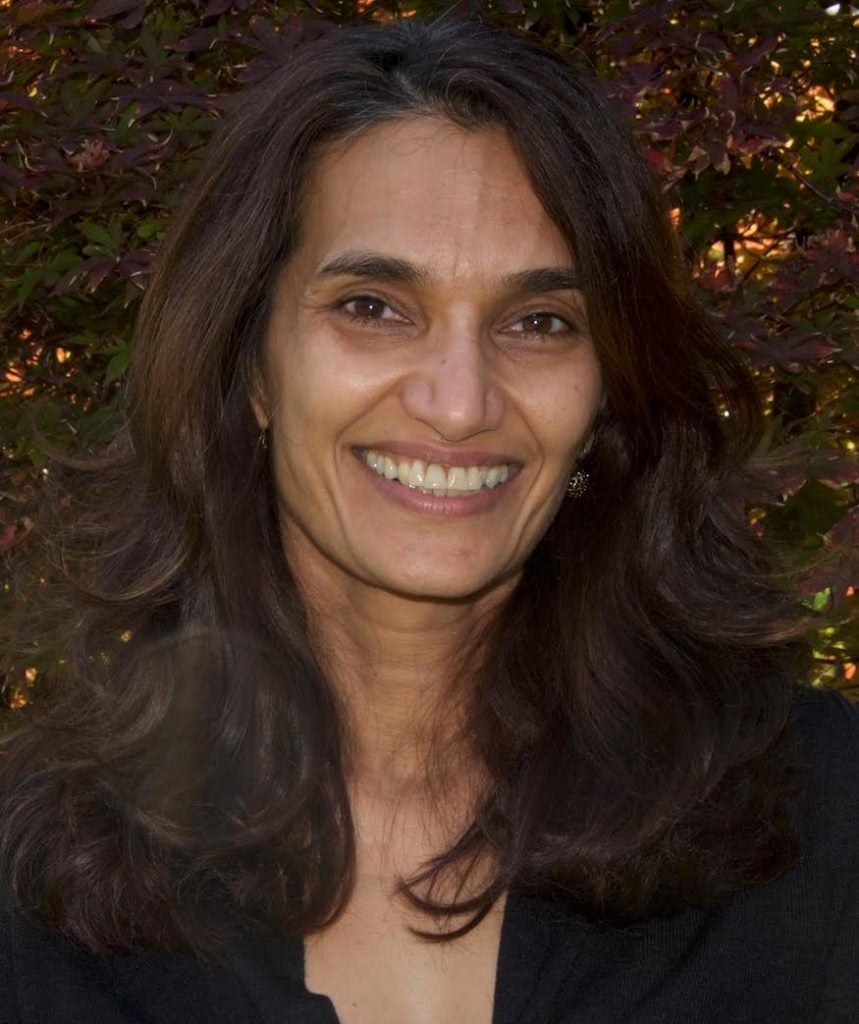
Dr. Chandan Vaidya
Professor and Chair of the Dept. of Psychology
Georgetown University
Dr. Chandan Vaidya, Ph.D. is a Professor and the Chair in the Department of Psychology at Georgetown University and also has a research appointment at Children’s Research Institute, Children’s National Health System in Washington, DC. Her graduate training is in Developmental Psychology from Syracuse University and her post-doctoral training is in Cognitive Neuroscience from Stanford University.
Her research program focuses on characterizing the functional neural architecture of executive control, which are effortful processes that allow us to adapt to environmental demands. Studies examine functional specialization of inhibitory and working memory processes, how individuals differ by dopaminergic genotype, how they break down in developmental disorders, and what mediates
pharmacological treatment by stimulants. Her research tools are multidisciplinary, comprising behavioral and structural, and functional magnetic resonance imaging. She focuses primarily on late childhood and disorders of development such as Attention Deficit Hyperactivity Disorder (ADHD) and high-functioning Autism. In collaborative projects, she is examining learning and executive control in normal aging (with Darlene Howard from Georgetown University and Jim Howard from Catholic University) and in schizophrenia (with Barbara Schwartz from the Veterans Administration Hospital). Her work is primarily funded by the National Institute of Mental Health.
The Role of the Writer: a Dialogue
Mario Vargas Llosa, 2010 Nobel Laureate in Literature, Claudio Magris, author of Danube, & Charlie Rose, famous journalist & television host.
Tuesday, April 18th, 2017 at 6:30p.m.
Intercultural Center Auditorium, Georgetown University
3700 O Street NW Washington, DC 20057
Speakers
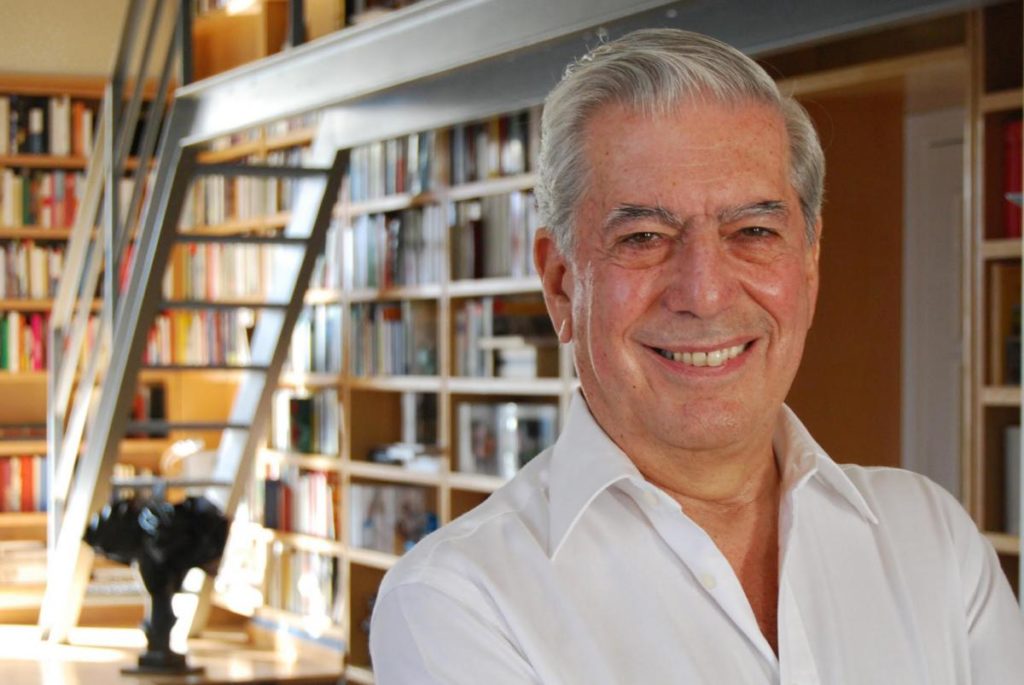
Mario Vargas Llosa
2010 Nobel Laureate in Literature
Mario Vargas Llosa was born in Arequipa, and also spent parts of his youth in Cochabamba (Bolivia), Piura in northern Peru, and Lima. He made his debut as a novelist with The Time of the Hero (1962), set in Leoncio Prado military Academy, where he had been a student. The book received immediate international recognition.
His many other works include the novels Conversation in The Cathedral, The Green House, The Real Life of Alejandro Mayta, Who Killed Palomino Molero? The Storyteller, Aunt Julia and the Scriptwriter, The Feast of the Goat, The Bad Girl, The Dream of the Celt, The Discreet Hero and the theatre plays La Chunga, Kathie and the Hippopotamus, The Young Lady from Tacna, among others.
He has also published several books of essays. He writes for El País (Piedra de Toque), and the cultural magazine Letras Libres (Extemporáneos) published in Mexico and in Spain. His books have been translated into more than forty languages. Mario Vargas Llosa has also been an outspoken participant in the world of politics, as a prolific essayist and candidate for elected office.
He has received a long list of prestigious literary awards, including the Leopoldo Alas Prize (1959), the Rómulo Gallegos Prize (1967), the National Critics’ Prize (1967), the Critics’ Annual Prize for Theatre (1981), the Prince of Asturias Prize (1986), the Miguel de Cervantes Prize (1994) — the Spanish-speaking world’s most distinguished literary honor, the Jerusalem Prize (1995), the Peace Prize of the German Book Trade (1996), the PEN/Nabokov Award (2002), the Nobel Prize (2010) and many Doctor Honoris Causa degrees from the most prestigious universities.
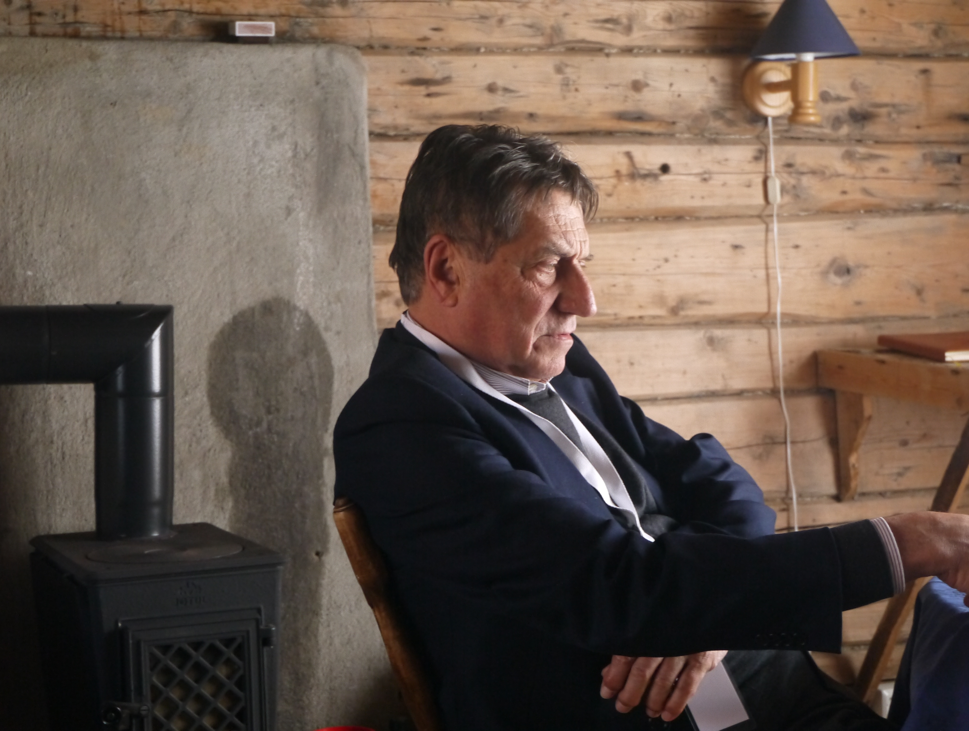
Claudio Magris
Author of Danube
Claudio Magris, was born in Trieste in 1939. He graduated from the University of Turin, where he majored in German studies. For several years he taught modern German Literature at both the University of Torino and of Trieste. His master thesis, Il mito absuburgico nella letteratura austriaca moderna (Einaudi 1963) is still considered a milestone in the field of Austrian literature studies.
In 1986 he published his first novel, Danube, which was translated in 24 languages. He is the author of numerous novels and essays, translated into many languages as well as a columnist for the Corriere della Sera and other European newspapers.
His numerous publications include: Lontano da dove, Joseph Roth e la tradizione ebraico-orientale, L’anello di Clarisse, Illazioni su una sciabola, Inferences from a Sabre, A different sea, Blindly, Three Plays, La storia non è finita. Etica, politica, laicità, Blameless, Istantanee, and others.
He has received several honorary degrees and numerous awards, among them: Premio Strega, Leipziger Buchpreis zur Europäischen Verständigung, Praemium Erasmianum, Premio Principe de Asturias, Premio Campiello, Premio FIL de Literatura Guadalajara, Premio Qualità della Lettura (Corriere della Sera), Taormina International Award for Literary Excellence, and Kafka Prize, to name a few.

Charlie Rose
Anchor and Executive Editor of Charlie Rose PBS Program
Charlie Rose is anchor and executive editor of CHARLIE ROSE, the nightly one-hour program that engages in one-on-one, in-depth conversations and round-table discussions, and the newly launched CHARLIE ROSE: THE WEEK, chronicling the best stories and interviews of the past seven days. He also co-anchors CBS THIS MORNING, is a correspondent for 60 Minutes and fills in for Scott Pelley on the CBS EVENING NEWS.
Since 1991, Charlie Rose has aired countless hours with Nobel Laureates, and extraordinary men and women of science, politics, art, business, sports, technology, literature, and entertainment. These conversations have made the broadcast a cultural and intellectual archive.
He is the recipient of the Legion d’honneur, 2014 Vincent Scully Prize, and numerous awards from the scientific and journalism communities, and many honorary degrees including Georgetown, N. C. State, Fordham, and others. Charlie Rose won an Emmy Award and Peabody Prize for his 2013 interview with Syria’s President Bashar al-Assad and was named among the 100 most influential people in the world by TIME magazine. He was the recipient of the 2015 Walter Cronkite Award for Excellence in Journalism and the 2014 Vincent Scully Prize.
Charlie Rose was born in Henderson, North Carolina, and graduated from Duke University with a B.A. in History and a J.D. from the School of Law. He maintains a home in Henderson where his father, a businessman, and his mother are buried. His primary residence is in New York City.
Thank you all for the great audience turnout!

The Future of Italian Manufacturing
Friday, March 24th at 4:00 p.m.
Baker Scholars Conference Room
Regents Hall, Room 550
Georgetown University
The Italian Institute, in collaboration with the Embassy of Italy and the Georgetown Retail and Luxury Association (GRLA), a student organization, is pleased to sponsor a conversation with Mr. Riccardo Illy, President, Illy Group S.p.A., on ‘The Future of Italian Manufacturing.”
Speakers
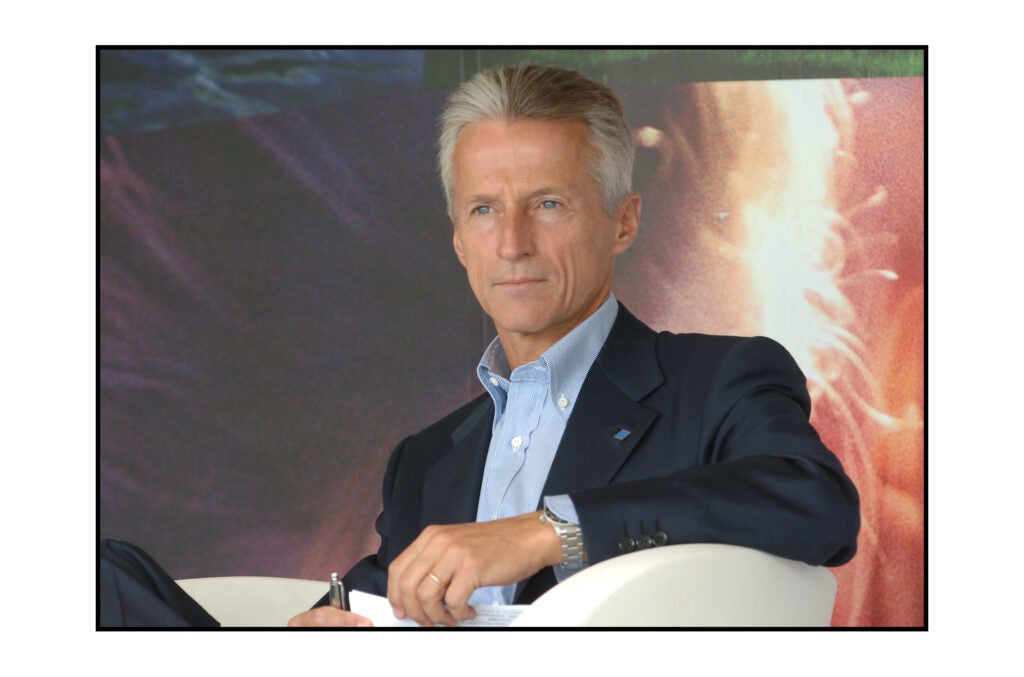
Riccardo Illy
President of illy Group S.p.A.
Riccardo Illy joined the family company, illycaffè S.p.A. in 1977 and mainly focused on the reorganization of the commercial structure. During the second half of the 80’s, he became the sales director and chose to reassert the uniqueness of the blend, returning to producing a single blend. In those same years, he reestablished and started up a network of Sales Organizations in Italy as well as abroad.
He also developed marketing and communication activities and redesigned the business logo. He extended product sales to the alimentary channel and, with the industrialization of the coffee pod/serving, in the workplace channel. Subsequently, he raised to international sales director and re-organised the structure of the subsidiary companies.
In 1992, he became managing director and in 1995, vice president. Riccardo Illy is also a journalist and author of a book, “Dal Caffè all’Espresso” published by Mondadori and translated in English, French and German, for which publication his brother Francesco produced the iconographic content. In 2006 he writes “La Rana cinese” (“The Chinese frog”) and in 2008 “Così perdiamo il Nord” “So we lose the north”.
In the past he has held the position of vice-president of the Associazione degli Industriali di Trieste (Industrialist Association of Trieste) and of the president of the Seminario Permanente Veronelli From 1993 to 2000, he was Mayor of Trieste and in 2001 was elected MP in the Italian Parliament. In 2003, he was elected President of the Regione Autonoma Friuli-Venezia Giulia, in charge until April 2008. In 2004, he was elected President of the Assembly of the European Regions.
From 2008 to 2010 he was a member of the High-Level Group on Administrative Burdens of the EU in Brussels. From 1997 to 2002, he was president of the Comitato Promotore della Direttrice Ferroviaria Europea Transpadana (a committee dedicated to promoting a fast trans-European railway line via Northern Italy). In 2000, the President of the Republic of Austria conferred him the “Golden Honorary Title”. In the same year, he was awarded the degree Honoris Causa in Political Sciences at the University of Trieste. In 2009, Riccardo Illy was appointed Grande Ufficiale by the President of the Italian Republic. In the same year, he is nominated IEDC-Bled School of Management Supervisory Board member.
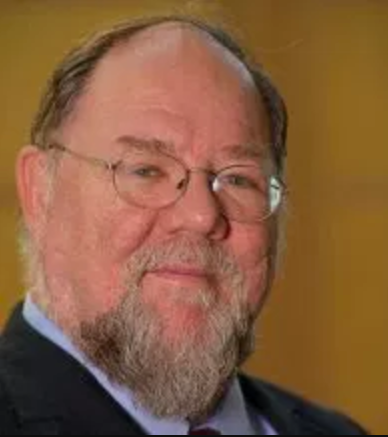
Michael R. Czinkota
Associate Professor of International Business & Trade
McDonough School of Business
Georgetown University
Born and raised in Germany, Doctor Michael R. Czinkota studied law and business administration at the University of Erlangen-Nurnberg. He holds an MBA in international business and a PhD in logistics from The Ohio State University.
Having taught international business and trade at the McDonough School of Business at Georgetown University, He is also the chaired professor emeritus for international marketing at the University of Birmingham. He also works with the University of Kent in Canterbury, England, where his research pursues the soul of international marketing, both in field as well as its students.
Dr. Czinkota served in the U.S. government during the Reagan and Bush Administrations and has worked with the U.S. Department of State on terrorism preparedness. In addition, Dr. Czinkota served as Deputy Assistant Secretary of Commerce in the U.S. Government and as Head of the U.S. delegation to the OECD industry committee in Paris. He has joined several corporate boards and has worked with corporations such as AT&T, IBM, GE, Nestlé, and US WEST. Features on the Global Advisory Board of the American Marketing Association, the Global Council of the American Management Association, and on the Board of Governors of the Academy of Marketing Science. He was named a Distinguished Fellow of the Academy of Marketing Science and a Fellow of the Royal Society of Arts in the U.K.
His academic work concentrates on export development strategies, trade negotiations, and trade policy, and the linkage of international business and terrorism. He was named one of the top three contributors to international business literature and received the Lifetime Achievement Award in Global Marketing from the American Marketing Association. His key textbook (co-authored with Prof. Ilkka Ronkainen) is International Marketing, in its 10th edition with CENGAGE. His blog to contact him and track his work is michaelczinkota.com.
A Fendi Roma Case Study: Featuring Pietro Beccari, Chairman and CEO of Fendi
Monday, March 13, 2017 at 4 p.m.
Lohrfink Auditorium, 2nd floor
McDonough School of Business, Georgetown University
The Georgetown University Italian Research Institute is pleased to collaborate with the Georgetown Retail & Luxury Association (GRLA), a student organization and co-sponsor a significant event on “A Fendi Roma Case Study. The featured speaker is Pietro Beccari
Speaker
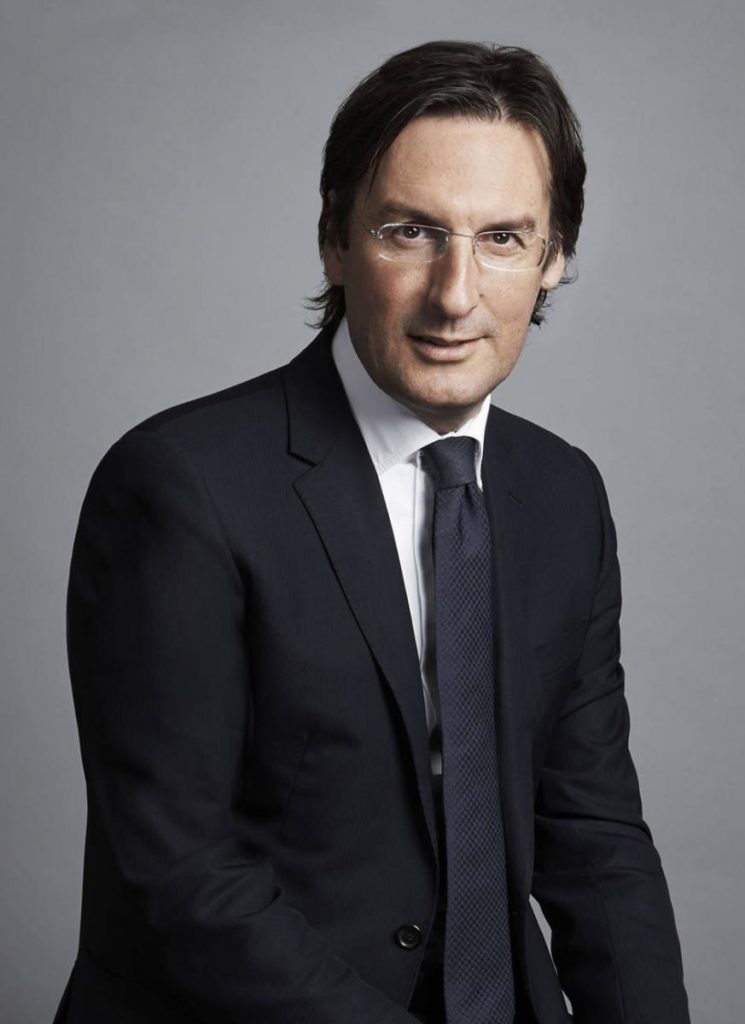
Pietro Beccari
Chairman & CEO of Fendi
One of LVMH’s top executives, Pietro Beccari was appointed the CEO of Fendi in February 2012. Beccari formerly held the position of executive vice president of marketing and communications at Louis Vuitton where his work on campaigns such as ‘Journeys’ featuring international stars Diego Maradona, Angelina Jolie and Buzz Aldrin, was met with industry-wide acclaim.
At Fendi, Beccari has introduced a number of new measures that have allowed the brand to reposition itself at the heart of Italian culture and heritage. In June 2013 Beccari launched the ‘Fendi for Fountains’ project in central Rome, providing over €2.2 million in restoration funds to the cultural ministry. In July the group also announced its intentions to relocate its corporate offices to the Palazzo della Civilta Italiana in 2015. Located in the centre of the city, the Palazzo is regarded as one of Rome’s most striking buildings and an estimated €2.8 million lease has already been signed.
Prior to joining LVMH in 2006, Becarri served in a number of positions for a diverse range of companies including British FMCG Reckitt Bensicker, Italian dairy group Parmalat, and German manufacturing company Henkel where he acted as corporate vice-president of haircare.
